Do you ever struggle to figure out what herbs go best with brussel sprouts?
You’re not alone.
That’s why we’re here to show you 10 herbs that pair perfectly with brussel sprouts!
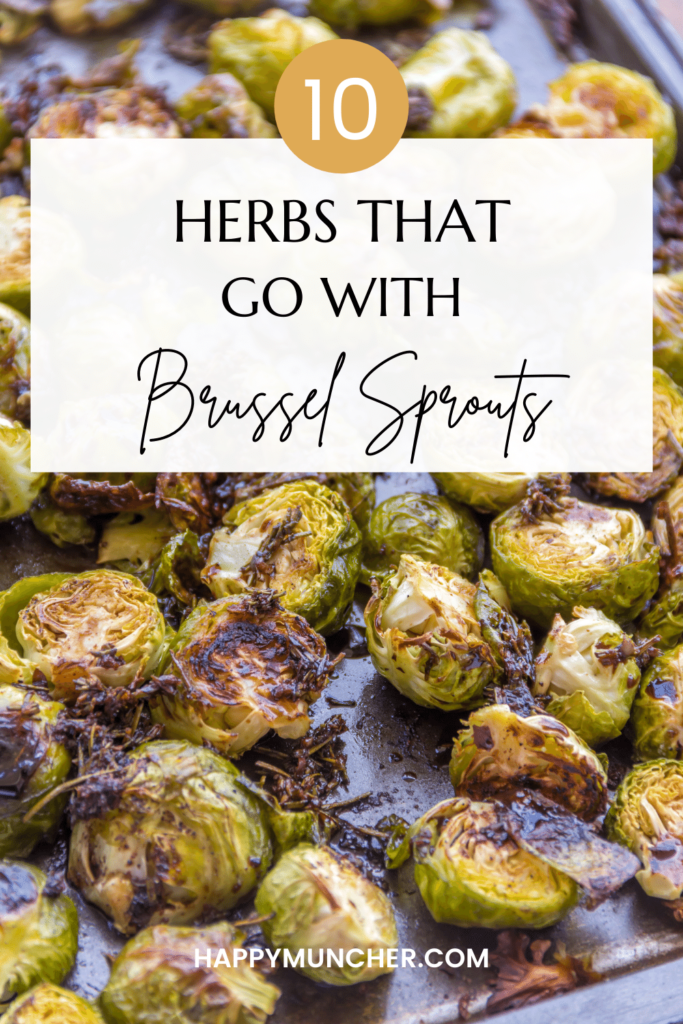
Whether you’re planning a Thanksgiving meal or just want something different for dinner, this list of herbs is sure to inspire you to branch out and try something new!
What Herbs Go with Brussel Sprouts?
There are many herbs that go well with brussel sprouts in a dish, but the most common is thyme. Thyme’s peppery taste complements brussel sprouts’ own complex flavors and adds a little extra oomph to any side of sprouts.

If you’re looking for other options, basil, rosemary, and tarragon are all excellent choices to make your brussel sprouts more flavorful.
Just use them sparingly; a little goes a long way!
Still looking for options?
Then keep scrolling!
1. Thyme

Brussel sprouts are a lot like their cabbage cousin: when they’re prepared right, they can be downright delectable; when they’re not, well, it’s less of a treat and more of an ordeal.
Thyme’s a herb with a slightly sweet, woodsy flavor that perfectly complements the subtle nutty flavor of brussel sprouts.
Plus, thyme is easy to grow in your own kitchen garden! Let’s talk about the basics of how to use thyme to make the best brussel sprouts you’ve ever had.
How much should I use?
Thyme is a great complement to brussel sprouts because its taste is slightly woodsy and subtly sweet—a nice contrast to the slight bitterness that makes brussel sprouts so flavorful.
You’ll want to use about one tablespoon of fresh (or half as much dried) thyme per half pound of brussel sprouts.
If you like an extra-kick of flavor, try adding some garlic or shallot along with the thyme.
2. Sage

If you’re a fan of brussel sprouts, then you will LOVE sage.
Sage is a common herb that has a sweet, earthy smell and peppery taste.
It pairs well with fats, so it’s a perfect addition to roasted or sauteed brussel sprouts—it’s even better if the sprouts are seasoned with something fatty (like pork).
It also goes well in salads and with grilled meats, so if you use it in your brussel sprouts, you can follow up by using leftover sage as a garnish on your salad or steak!
- How much should I use? You only need about 1/2 tsp of sage per pound of brussels sprouts.
- When should I add it? Add it at the same time that you add salt and pepper to the brussles sprouts before cooking.
- How do I prepare it? Sage doesn’t need to be cooked—just chop finely and throw in during prep!
3. Parsley

Parsley adds a nice bit of color, and the flavor of parsley is so mild that it won’t overwhelm the brussel sprouts’ natural flavor.
Here’s how you can add parsley to your next brussel sprouts dish.
- When should I add it? Add it at the very end! You don’t want to cook away any of its flavor or texture by adding it too early in the cooking process.
- How much should I use? A little goes a long way with this herb—about one tablespoon per cup will do the trick. But don’t worry—if you accidentally go overboard, no one will know until they try it!
- How do I prepare it? Fresh is best! If you’re using fresh parsley, just roughly chop it up before adding it into your meal.
4. Rosemary
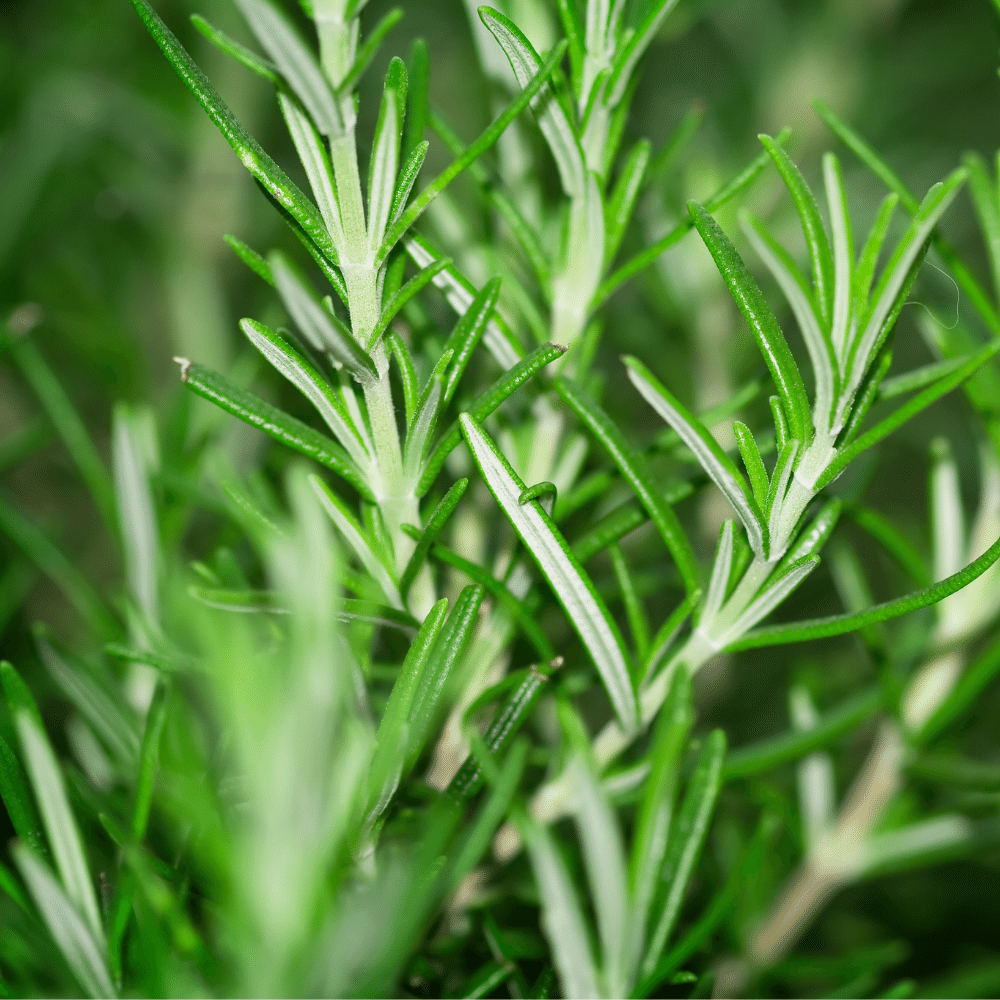
Rosemary can be used in many different ways, and it’s versatile enough that you can add it to your dish at any point during your cooking process.
- How much should I use? You can add rosemary according to your taste preferences. While it’s not necessarily overpowering, it does have a distinct aroma and flavor that you should consider while planning out your dish. For example, if you’re making a dish where rosemary will be one of many different ingredients, then you won’t need to use as much rosemary as if it were the main flavor (or one of the main flavors) in your dish.
- When should I add it? You can add rosemary at any point during the cooking process. Add fresh or dried rosemary with other ingredients early on to allow time for the flavors to meld together. You can also sprinkle some fresh or dried rosemary near the end of the cooking process for more visual appeal and a stronger taste. If using a paste, rub some on after cooking but before serving for an extra dose of flavor and visual appeal.
5. Tarragon
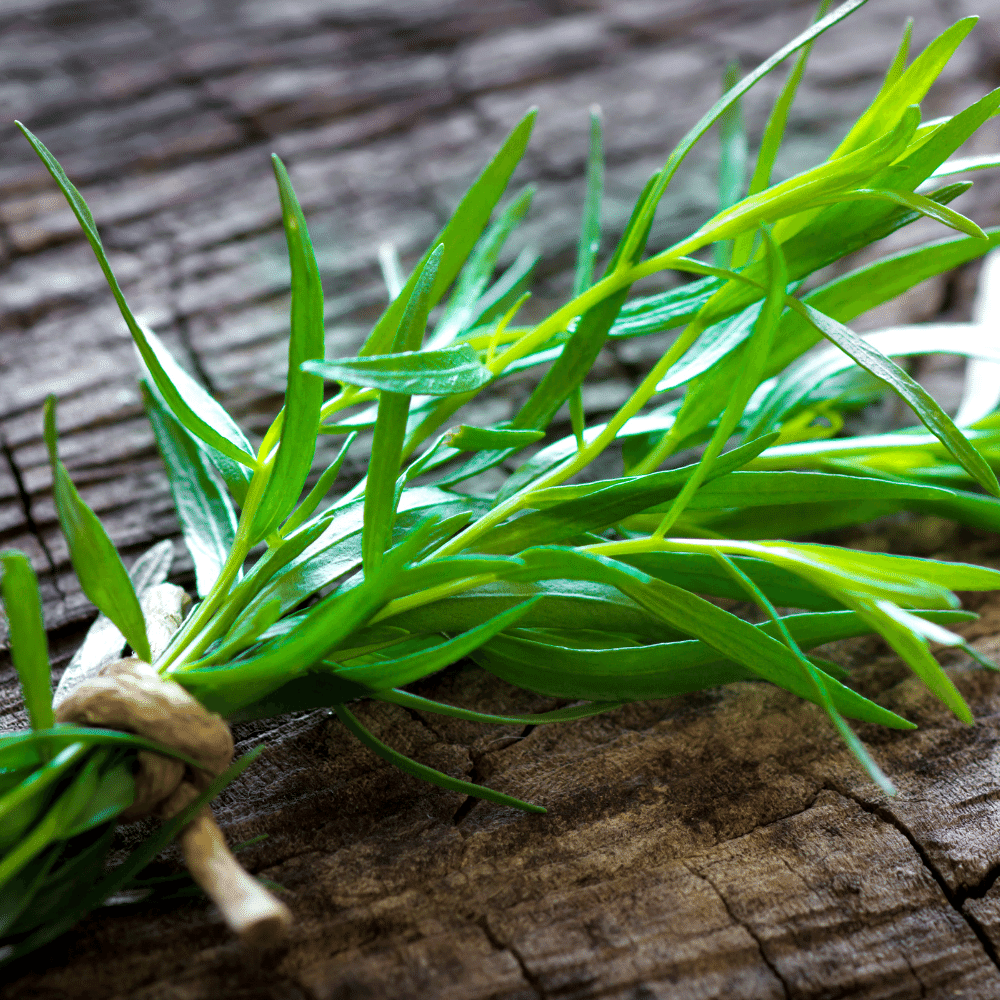
Tarragon is one of the best herbs for making brussel sprouts even MORE mouthwatering.
It’s a subtle herb with a lot of depth, and it goes well with other ingredients that people usually associate with brussel sprouts: bacon and Parmesan cheese.
- So how much should you use?
- When should you add it?
- And how do you prepare it?
Well, there’s no set amount that works every time—it depends on your personal tastes.
But in general, most people agree that 1/4 cup of chopped tarragon is plenty for four servings of brussel sprouts.
One of my favorite ways to cook them is to sautee the tarragon in butter until the leaves are soft and translucent before adding the brussel sprouts, then sauteeing everything together until the outer leaves start to brown lightly.
If you’re feeling extra fancy, try adding some garlic or lemon zest too!
If you’ve never tried tarragon on your brussel sprouts before, I think you’ll find that it’s hard to go back to eating them any other way.
6. Basil

Basil is a great herb to use when your brussel sprouts are too bitter and need a little extra something.
- How much should I use? Basil is best used in small quantities. Try using about one teaspoon for four servings of brussel sprouts. If you like your basil more potent, you can add more, but don’t go overboard!
- When should I add it? For best results, add the basil while cooking the brussel sprouts. Add it at the end of cooking to keep the flavor fresh. You can also sprinkle it on right before serving.
- How do I prepare it? There are a few ways to prepare the basil. You can mince it with a knife or a food processor. The mince result will be a fine paste, which you can then sprinkle on top of your brussel sprouts. Alternatively, you could use dried basil and skip this step entirely. You can also simply take whole leaves and sprinkle them on top of your dish after cooking.
7. Nutmeg

Have you ever wanted to add a little adventure to your cooking?
Well, you have to try nutmeg!
- How much should I use? Nutmeg is a spice, so use it sparingly. If you’re cooking for four people, you’ll only need about 1/4 tsp. It goes a long way!
- When should I add it? Add it to your brussel sprouts after they’re fully cooked and before serving them. The flavor will come through more if you add it when they’re still hot.
- How do I prepare it? Start by removing the outer shell of the nutmeg seed with a nutcracker or hammer. Put the broken-up pieces in a blender or food processor and pulse until they are finely ground into powder. Store in a cool, dry place and use within two months for best flavor.
8. Cayenne

If you’re looking to add some serious kick to your brussel sprouts, you can’t go wrong with cayenne pepper.
- How much should I use? As with most seasonings, you can sprinkle on as much or as little as you like, but we recommend starting with a pinch and moving up from there.
- When should I add it? Cayenne pepper is strong stuff, so adding it early in the cooking process gives it a chance to mellow out a bit. You can also add it right before serving if you want that raw heat to really hit you in the face.
- How do I prepare it? Cayenne pepper is best used as a powdered spice that’s ready to go straight out of the jar.
9. Cumin

Cumin’s rich, smoky flavor adds depth and complexity to your dish without overpowering the natural flavors of brussel sprouts.
- How much should I use? Use about 3/4 teaspoon per pound of brussel sprouts for a medium-level cumin flavor. You can adjust this amount if you want a more or less intense flavor profile.
- When should I add it? You can add cumin while frying the brussel sprouts in butter and garlic or at any other point during cooking, giving you quite a bit of flexibility.
- How do I prepare it? Cumin is best when it is added whole and toasted until aromatic in your cooking fat before adding the rest of your ingredients. Then, grind it up so that the flavor fills every bite of your dish!
10. Garlic powder
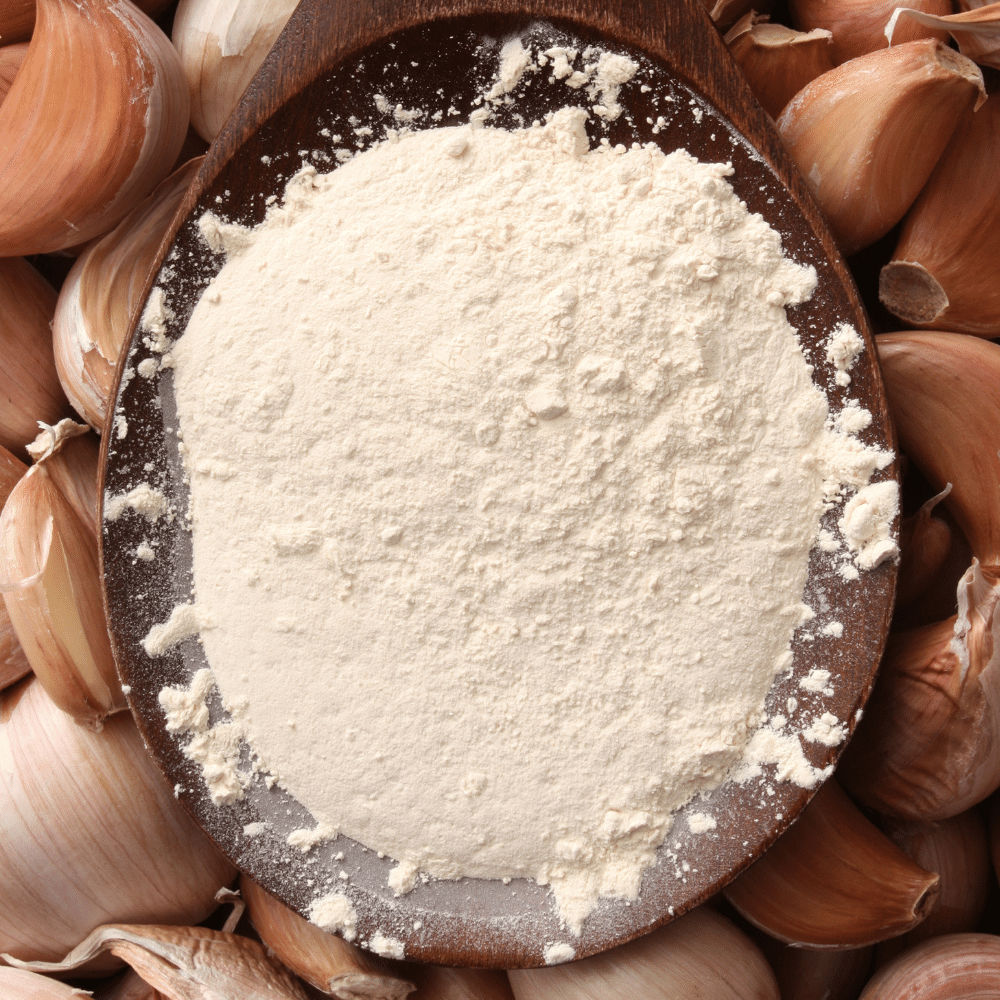
Garlic powder is the perfect complement to brussel sprouts in a way that will have you coming back for seconds (and maybe even thirds, if you have any left over).
- First, how much should you use? Garlic powder is pretty strong—you really only need about 1 teaspoon per pound of brussel sprouts. If you’re unsure, err on the side of too little—you can always add more if needed.
- Next, when do you add it? You can stir it into your butter or oil before adding the brussel sprouts and roasting them, and/or you can sprinkle extra over the top at the very end of cooking.
- Finally, how do you prepare it? Because garlic powder is so fine, there’s no need to chop or mince it—it’s ready to go as-is!
What to Put on Steamed Brussel Sprouts

Brussel sprouts are a delicious and healthy vegetable that can be enjoyed year-round, but let’s face it: the best way to prepare them is to steam them.
However, if you’re not a big fan of the flavor they have all on their own, you might be wondering what to put on steamed brussel sprouts.
If so, you’re in luck!
There are plenty of things you can use to add flavor and texture to your steamed brussel sprouts.
You can go for some cheese, spread with a bit of butter (or even just melted butter).
Some shredded parmesan cheese is great; so is cheddar, or even just plain old gouda.
You could also stir in a handful of walnuts, or maybe throw some bread crumbs on top. Garlic or pepper seasoning also work well.
Or try adding some bacon—yum!
If none of these ideas are up your alley, maybe you’d be interested in using some sort of sauce or dip.
Horseradish sauce has been popular for years and pairs well with brussel sprouts. Aioli is another good one, as is ranch dressing.
What’s the Best Seasoning for Roasted Brussel Sprouts?
The best seasoning for roasted brussel sprouts is a combination of salt, pepper, and garlic powder.
It’s a simple but effective combination that will bring out the natural good taste of brussel sprouts and make them crispier, giving them a nice texture contrast with their soft interiors.
What’s the Best Seasoning for Brussel Sprouts in An Air Fryer?
I’ve been experimenting with different seasonings for brussel sprouts in my air fryer, and here’s what I’ve found that works best.
The first time I tried it out, I sprinkled them with salt, pepper, and paprika.
They came out nice but not great, so I decided to try again with a dry rub.
This time around, I rubbed them with cumin, garlic powder, and onion powder before putting them in the fryer.
They came out pretty good! Still a little bitter.
Next, I tried using more spice: cayenne pepper, chili powder, and a little bit of oregano.
These were good too!
But still a little bitter for my taste.
Finally, I tried using a marinade: olive oil and balsamic vinegar.
These came out PERFECT.
My friends who were over for dinner said they were the best sprouts they’d ever tasted!
So if you’re looking to knock your friends’ socks off next time you have them over for dinner, try marinating your air-fried brussel sprouts in some olive oil and balsamic vinegar before cooking them up.
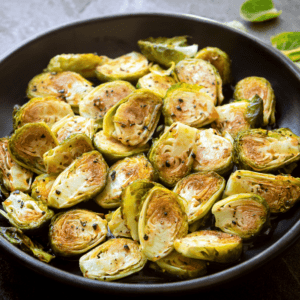
10 Herbs that Go with Brussel Sprouts
Ingredients
- Thyme
- Sage
- Parsley
- Rosemary
- Tarragon
- Basil
- Nutmeg
- Cayenne
- Cumin
- Garlic powder
Instructions
- Pick one or more of the herbs from this list to use with your brussels sprouts.
- Prepare the rest of your ingredients.
- Be ready to munch in no time!
Hi, I'm Benjamin. I love cooking, long walks, and my girlfriend! Here you’ll find simple and delicious recipes that you can make in 30 minutes or less.

